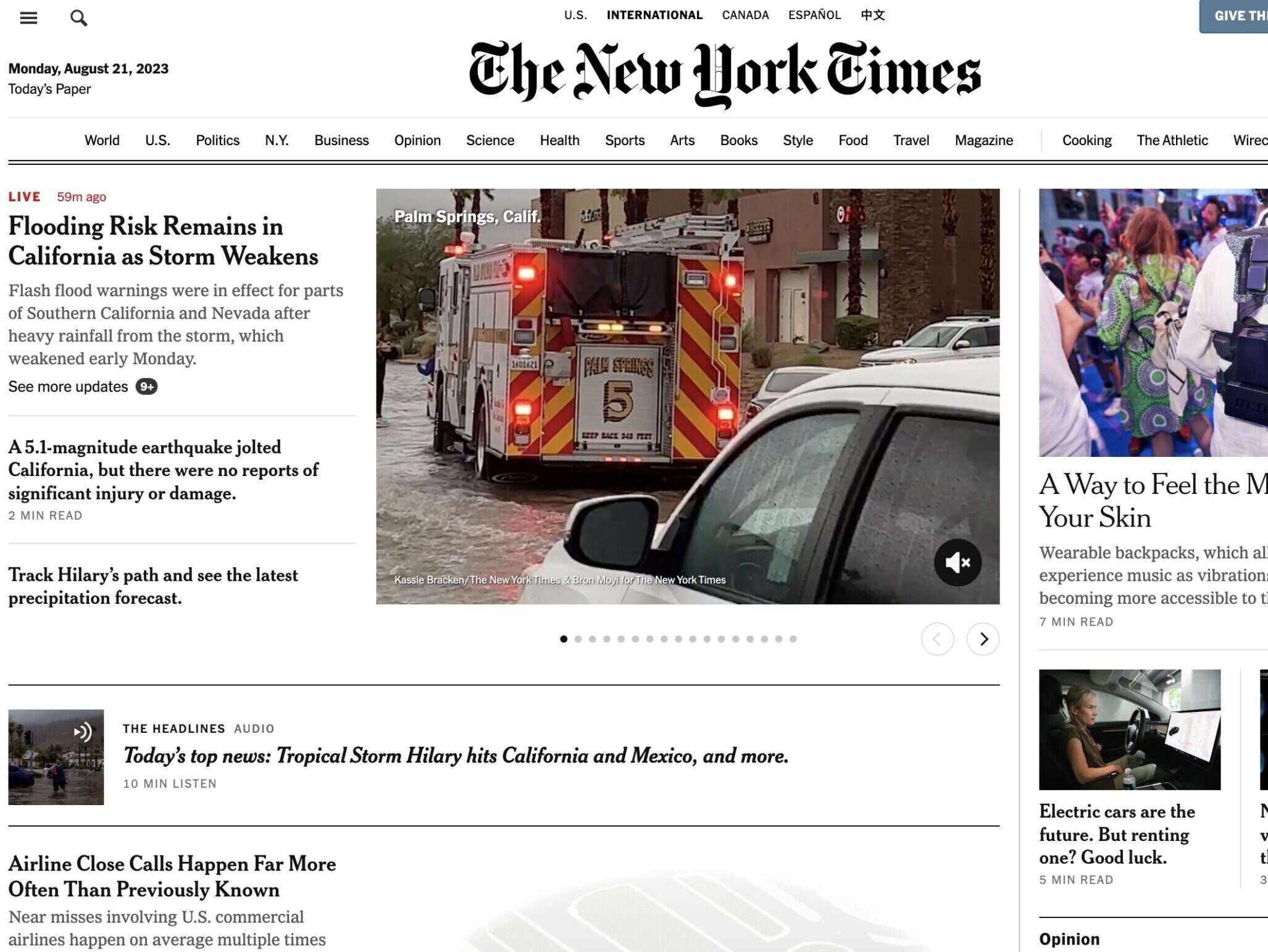6 Easy Facts About News Websites Shown
Table of ContentsThe Ultimate Guide To News WebsitesNews Websites Fundamentals ExplainedThe Basic Principles Of News Websites Getting My News Websites To WorkNot known Facts About News Websites
It was down in the UK and Brazil yet up some various other nations, such as Greece, Bulgaria, and Poland (News Websites). This year, for the very first time, we inquired about the different ways that people prevent the information and located that around half of avoiders (53%) were attempting to do so in a broad-brush or periodic means for instance, by switching off the radio when the information began, or by scrolling past the information in social media sitese.g. scrolling past information, altering networks when information comes on. of avoiders inspect sources less typically. e.g. restriction to particular times of day, shutting off alerts, etc. of avoiders stay clear of some topics. e.g. topics that reduce state of mind or boost anxiousness. You stated that you try to actively stay clear of information.

I'm possibly choosing to read more light-hearted stories than I used to at the moment. M, 51, UK Switching my back on news is the only way I feel I can deal often. I need to consciously make the initiative to turn away for the sake of my own mental health and wellness.
The Basic Principles Of News Websites
Discerning avoidance of Ukraine news was highest possible in a lot of the nations closest to the conflict, strengthening findings from our additional study in 2014, right after the battle had actually started. Our information might not suggest a lack of rate of interest in Ukraine from nearby nations however instead a desire to manage time or shield mental health from the extremely real scaries of battle.
Contrasting Finland with a politically polarised nation such as the United States (see following graph) that is less influenced by the battle, we find an extremely various pattern of subject avoidance. In the USA, we find that customers are most likely to stay clear of subjects such as national politics and social justice, where disputes over issues such as sex, sexuality, and race have ended up being highly politicised.
American politics are rather hazardous these days. I discover sometimes that I have to detach from stories that just make me angry. F, 61, USA For some people, bitter and disruptive political discussions are a factor to turn off news completely, however, for some political upholders, evasion is typically concerning shutting out point of views you do not intend to listen to.

News Websites - An Overview
Some are looking to make information extra accessible for hard-to-reach teams, broadening the information program, appointing more motivating or positive information, or embracing positive or solutions journalism that provide individuals a feeling of hope or individual agency. In our study this year, we asked respondents concerning their passion in these different strategies.
This discusses why stories like Ukraine or national politics carry out well with news regulars but can at the exact same time transform less interested individuals away (News Websites). Careful avoiders are much less thinking about all sorts of information than non-avoiders however in relative terms they do seem to be a lot more interested in favorable or solutions-based information

All about News Websites
2023). This may hold true in the moment, yet gradually it appears to be leaving lots of people vacant and much less pleased, which might be undermining our connection with and rely on the news. Throughout markets, overall count on in news (40%) and count on the sources people utilize themselves (46%) are down by an even more 2 percentage factors this year.
Via the rear-view mirror, the COVID-19 trust fund bump is clearly visible in the following chart, though the direction of traveling later on has been blended. In many cases (e.g. Finland), the trust fund rise has been preserved, while in others the upturn looks even more like a blip in a tale of ongoing lasting decline.
Several of the highest reported levels of media criticism are located in nations with highest degrees of distrust, such as Greece, the Philippines, the United States, France, and the UK. The least expensive degrees of media criticism are frequently in those with greater visit this page levels of count on, such as Finland, Norway, Denmark, and Japan.
7 Simple Techniques For News Websites
This year we asked respondents about their choices for message, sound and video when taking in information online. Typically, we find that the bulk still prefer to read the information (57%), as opposed to watch (30%) or pay attention to it (13%), but younger people (under-35s) are most likely to listen (17%) than older groups.
Behind the standards we find significant and unexpected nation differences. In markets with a solid analysis practice, such as Finland and the UK, around 8 in 10 still choose to check out online information, yet in India and Thailand, around 4 in 10 (40%) say they like to view information online, and in the Philippines that percentage is over fifty percent (52%).